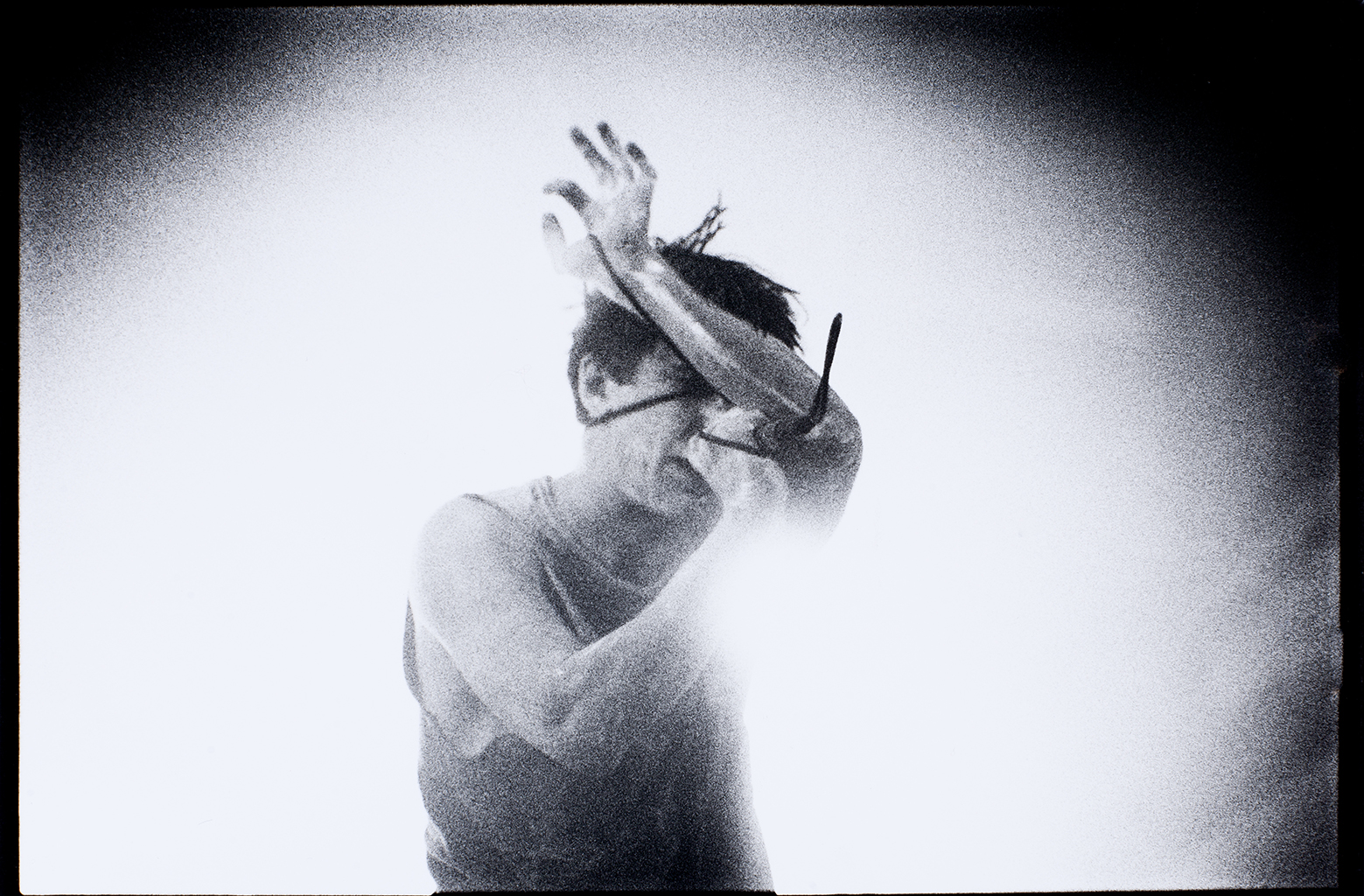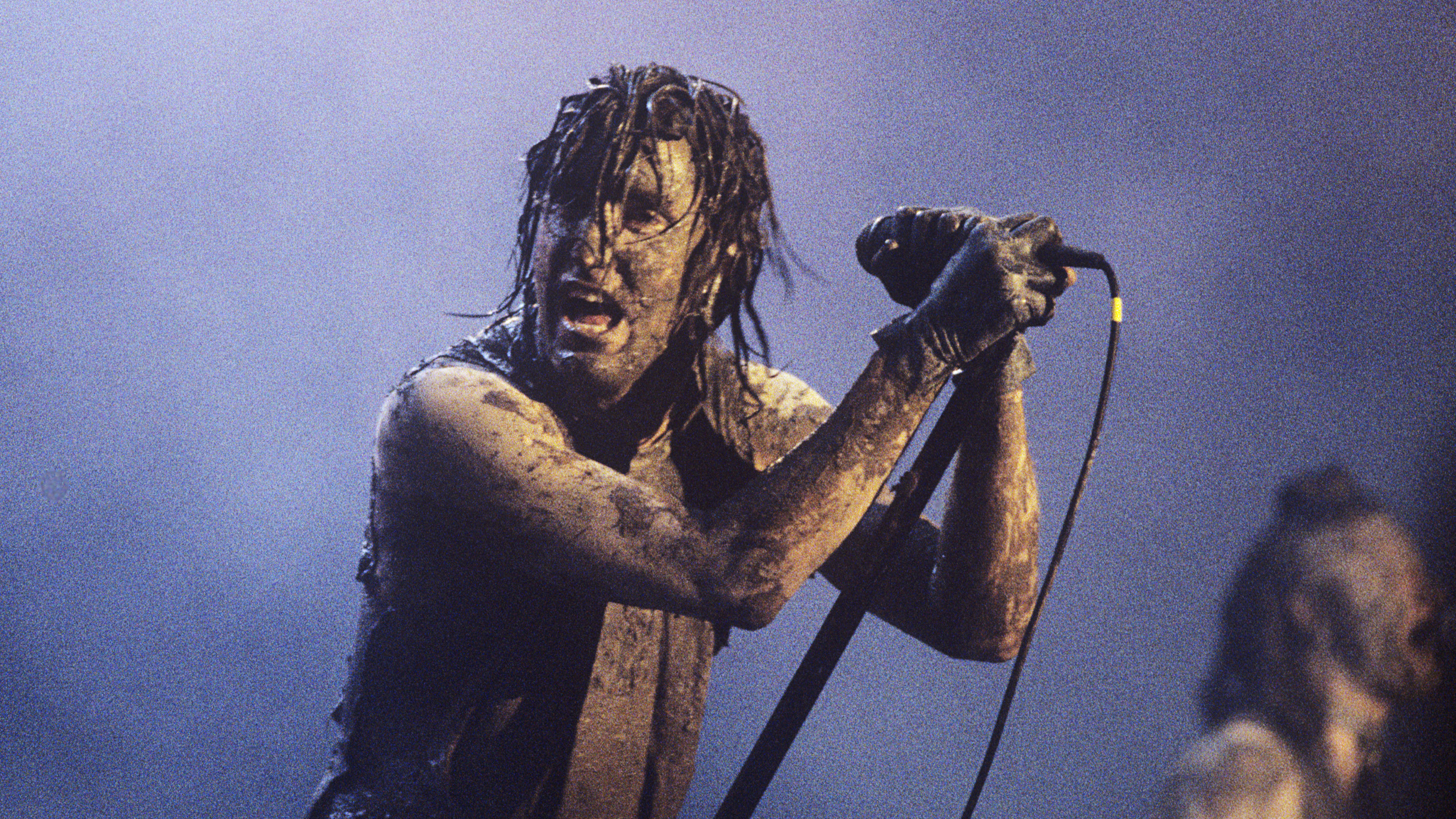“‘F**k this song! Ugh! Turn it off!’ That’s what we wanted!”: Is Trent Reznor music's most uncompromising producer?
From the blistering intensity of his 90’s masterpiece, The Downward Spiral, to his iconic film scores, Reznor has carved a singular path through the music industry

Want all the hottest music and gear news, reviews, deals, features and more, direct to your inbox? Sign up here.
You are now subscribed
Your newsletter sign-up was successful
Trent Reznor holds a special place in the heart of every production nerd. Experimental, innovative, commercially successful and totally uncompromising – his body of work has influenced everyone from David Bowie, Korn, 5 Seconds of Summer and Lil Nas X. Not artists you usually hear mentioned in the same sentence, but then Reznor’s work seems to cross any number of boundaries.
With a career spanning the early days of sampling up to the current cutting edge of digital production, Reznor’s evolution from menacing industrial rock frontman to film-scoring savant holds lessons for anyone interested in the emotional potency of music production. Now, with the announcement that Nine Inch Nails will be providing the soundtrack for the upcoming film Tron: Ares, it seems like the perfect moment to look at what makes Trent Reznor’s production style so fascinating.
Born in 1965 in the small, rust-belt town of New Castle, Pennsylvania, Reznor got his first break while working as a janitor at Right Track Studio in Cleveland, Ohio. Sweeping floors and cleaning toilets by day, he spent his nights stealthily using the recording facilities to create his 1989 debut, the angsty, synth-laden, Pretty Hate Machine. A surprise success, the album was instrumental in taking industrial rock from niche subculture to mainstream prominence. However, the musical ideas and concepts seeded on Pretty Hate Machine would only come into full flower some five years later.
A pillar of Reznor’s genius is the wholistic approach he takes to making music – nowhere is this truer than on 1994’s The Downward Spiral. An unflinchingly bleak concept album, even 30-years later it still seems to exist in its own sonic universe. “Songwriting, and arranging, and production, and sound design – it all became the same thing,” Reznor said of the process in a 2005 interview on MTV. “A song would start with a sound, or a drum loop, or an idea for a visual, and eventually a song would emerge out of that.”
Using a smorgasbord of outboard gear – including the Kurzweil K2000, an Eventide H3500, and a Teletronix LA-3A to name just a handful – the album paired analogue experimentation with then-cutting edge digital workflows, using the first ever release of Pro Tools to cut up live jam sessions, sample, loop, arrange, and layer with a freedom that would have been impossible when splicing physical tape.
Besides the technicalities of studio innovation, what really stands out is Reznor’s willingness to challenge the listener
Besides the technicalities of studio innovation, what really stands out is Reznor’s willingness to challenge the listener, to actively buck the trends that would normally ensure commercial success, and yet somehow achieve commercial success anyway. The album’s ultra-explicit breakout single, Closer, is over six minutes long – three of which are purely instrumental – and densely packed with sonic oddities. These are not the standard ingredients for mass music consumption, yet the song remains as relevant, and popular, today as it has ever been.
Even on the album’s iconic finale, Hurt, which would later be taken up as Johnny Cash’s swan song, Reznor went out of his way to push the production to places less committed producers would flinch at. Describing the song's construction, Reznor says he “put noise through the whole thing so there was no chance it could have any commercial life.”
Want all the hottest music and gear news, reviews, deals, features and more, direct to your inbox? Sign up here.

At the same time, Reznor has time and again proven himself to be a musical pragmatist rather than a purist. His loyalties lie only with the needs of the song, and on subsequent albums like The Fragile, With Teeth, and Hesitation Marks, he fluidly shifted between electronic, acoustic, and purely digital instrumentation without missing a beat.
As harsh and mechanical as Reznor’s productions can appear at first glance, they have always centred on a deep emotional core. The well-honed ability to communicate those emotions through pure sound is what has allowed Reznor to move seamlessly into a career scoring for Film and TV.
"I aspire to make a record that sounds better ten listens in than it does after two"
Alongside his creative sparring partner, Atticus Ross, Reznor has won acclaim – and numerous awards – for his hauntingly emotive soundtracks. “When we write music,” he recently told GQ. “It’s coming from a place where the main intent is to have you feel a certain way. It’s not coming from a love of melody or the joy of intricate chord progressions, or technical wizardry.”
No matter the medium, one thing Reznor never seems to budge on is the details. Both his scores and his albums are often deceptively simple – hiding layers of detailed production that continue to surprise decade after decade. As Reznor himself puts it: “I aspire to make a record that sounds better ten listens in than it does after two — and still, at fifty listens, you're picking out things that add a depth and a thoughtfulness.”
Trent Reznor in four tracks
1. Nine Inch Nails - The Becoming (1994)
One of The Downward Spiral’s underrated gems, The Becoming pairs an infectious groove with ever increasing sonic intensity, all underpinned by a discordant sample taken from cult flick Robot Jox. “We had some weird wailing women like, “Ooooo-ohhhhh-ooohh!” Reznor told Revolver in 2020. “With that looping under the whole song ... It just helped you feel, like, ‘Fuck this song! Ugh! Turn it off!’ And that’s what we wanted.”
2. Dried Up, Tied And Dead To The World - Marilyn Manson (1996)
Alongside his formidable 90’s output, Reznor took time away from NIN to co-produce another of the decade’s most successful industrial rock albums, Marilyn Manson’s Antichrist Superstar. While the two rockers would part ways in a much publicised spat after the album’s release, Reznor’s fingerprints are all over the album; with frayed-edge distortion, abstract samples, and detailed sound design helping elevate these songs from angry and loud into something genuinely sinister.
3. Nine Inch Nails - Copy of A (2013)
By the time Reznor released NIN’s 2013 album, Hesitation Marks, he’d firmly embraced digital production techniques for a cleaner, tighter, but no less challenging sound. “Hypnotic but slightly unnerving” is how Reznor described Copy Of A to NPR. “Not comfortable, not EDM dance-tent, wave-your-hands-in-the-air, but more something that keeps you on the edge of your seat, that doesn't feel quite right.”
4. Trent Reznor & Atticus Ross - Hand Covers Bruise (2010)
The opening motif for David Fincher’s The Social Network ushered in a new phase in Reznor’s career. Lonely, emotive, and backdropped by a slow-boil of tension – it’s a musical blueprint that has made Reznor one of the most in-demand screen composers of the modern era. “With that theme, put right there, the whole film feels different and weird,” Reznor told GQ. “For us that was a huge moment; realising the possibility of what could be done with music and film.”
Clovis McEvoy is a freelance writer, composer, and sound artist. He’s fascinated by emerging technology and its impact on music, art, and society. Clovis’ sound installations and works for virtual reality have been shown in 15 countries around the world.





